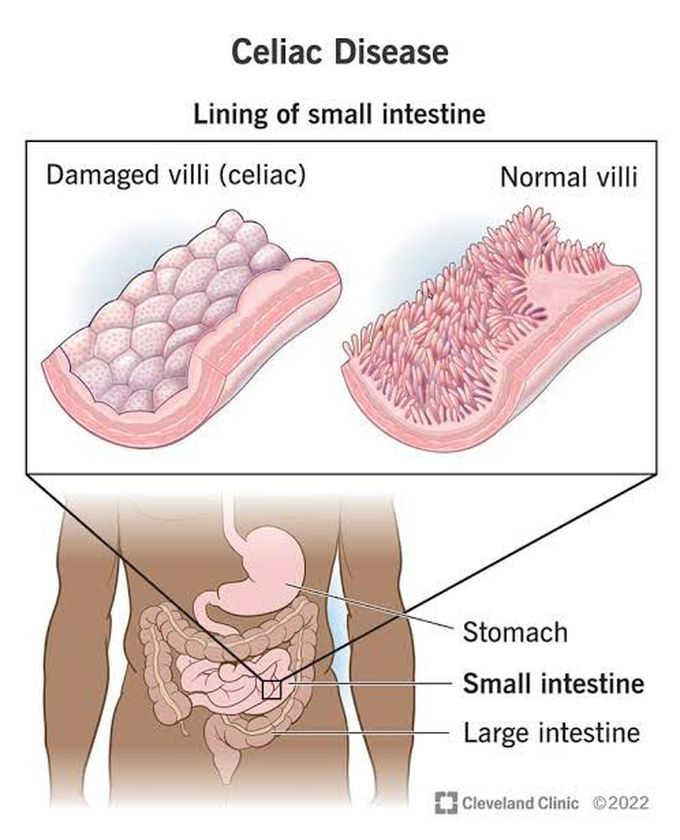

Hunain6 months ago

causes of celiac disease
Your genes combined with eating foods with gluten and other factors can contribute to celiac disease, but the precise cause isn't known. Infant-feeding practices, gastrointestinal infections and gut bacteria might contribute, as well. Sometimes celiac disease becomes active after surgery, pregnancy, childbirth, viral infection or severe emotional stress. When the body's immune system overreacts to gluten in food, the reaction damages the tiny, hairlike projections (villi) that line the small intestine. Villi absorb vitamins, minerals and other nutrients from the food you eat. If your villi are damaged, you can't get enough nutrients, no matter how much you eat.
Other commentsSign in to post comments. You don't have an account? Sign up now!
Related posts
AppendicitisLiver cirrhosis: Definition, pathology, diagnosis, treatment and prevention | KenhubGallstones Signs & Symptoms, Why They Occur | Cholecystitis, Choledocholithiasis, CholangitisObstructive Jaundice - A Surgical Student's perspective!Weird Symptoms of Diverticulitis | Atypical Clinical Features of DiverticulitisGastric lavageEndotracheal IntubationIntussusceptionCaput MedusaeCaput medusea

